The Doctor’s quest to get Belinda home to Earth leads to a space station hosting a famous song contest. But a harmless night of fun soon becomes a battle to survive.
Review by Tim Robins
SPOILERS AHEAD
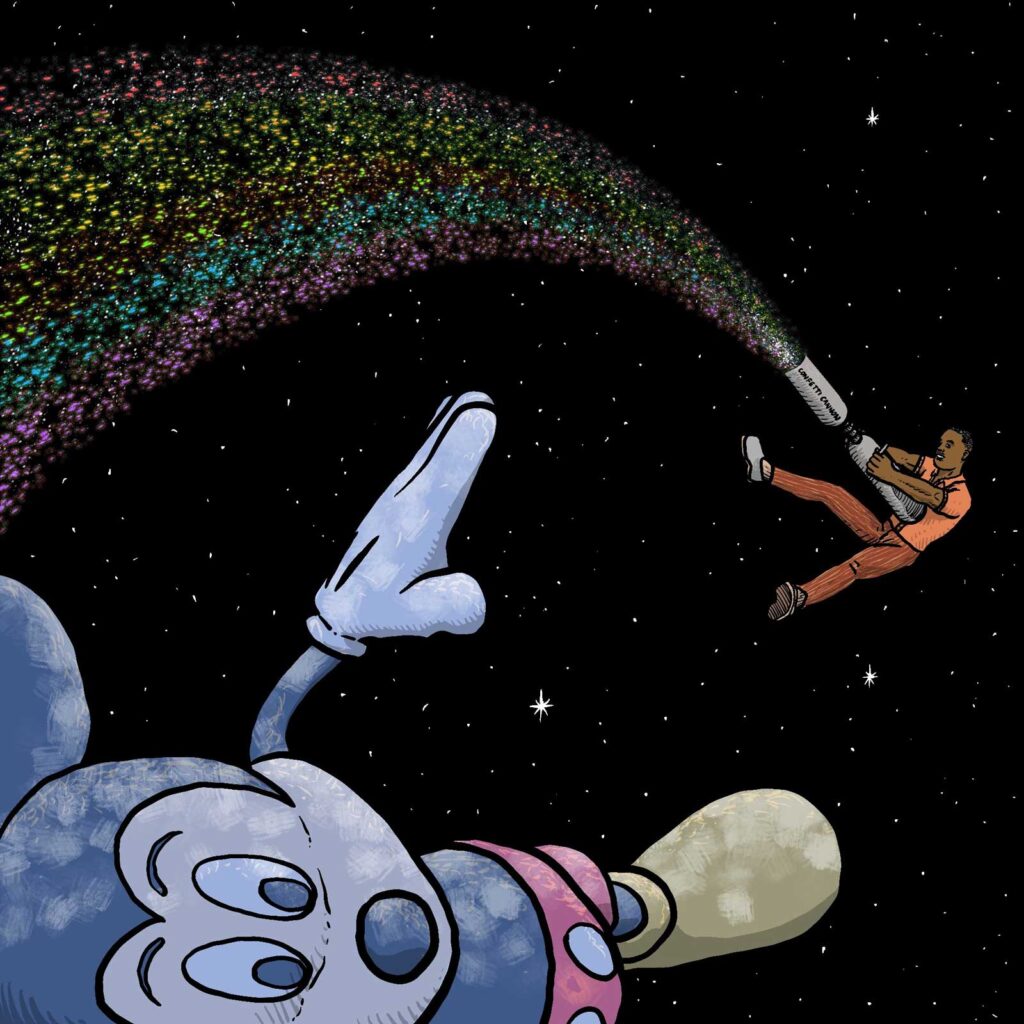
“The Interstellar Song Contest” proved the most enjoyable episode of Doctor Who for many a year. Importantly, it actually felt like a proper Doctor Who story, while still combining aspects of light entertainment that have been a feature of Ncuti Gatwa’s time as The Doctor.
The TARDIS materialises in a VIP booth at a Eurovision Song Contest in space. After The Doctor takes a reading from “The Vindicator”, a device designed to help return Belinda to her proper time and space, the pair decide to stay and enjoy the event. Unknown to them, the show has been infiltrated by Hellions, who are out to exact revenge for their homeworld being despoiled by “The Corporation”, who sponsor the event. When the contest is beamed live across the universe, everyone viewing (and listening) will be killed by a sonic weapon.
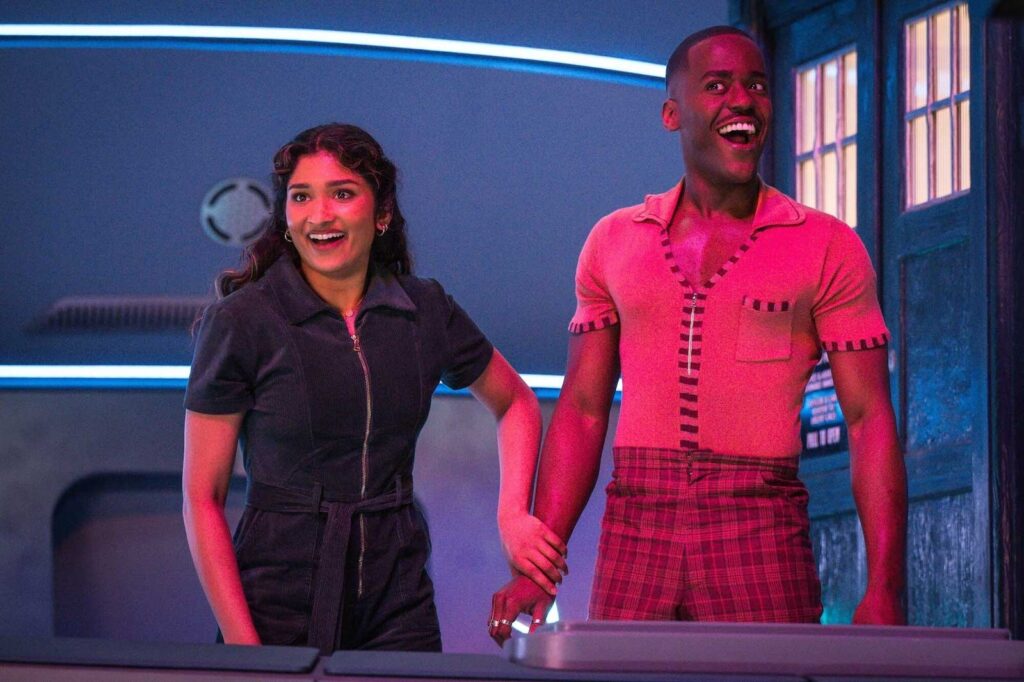
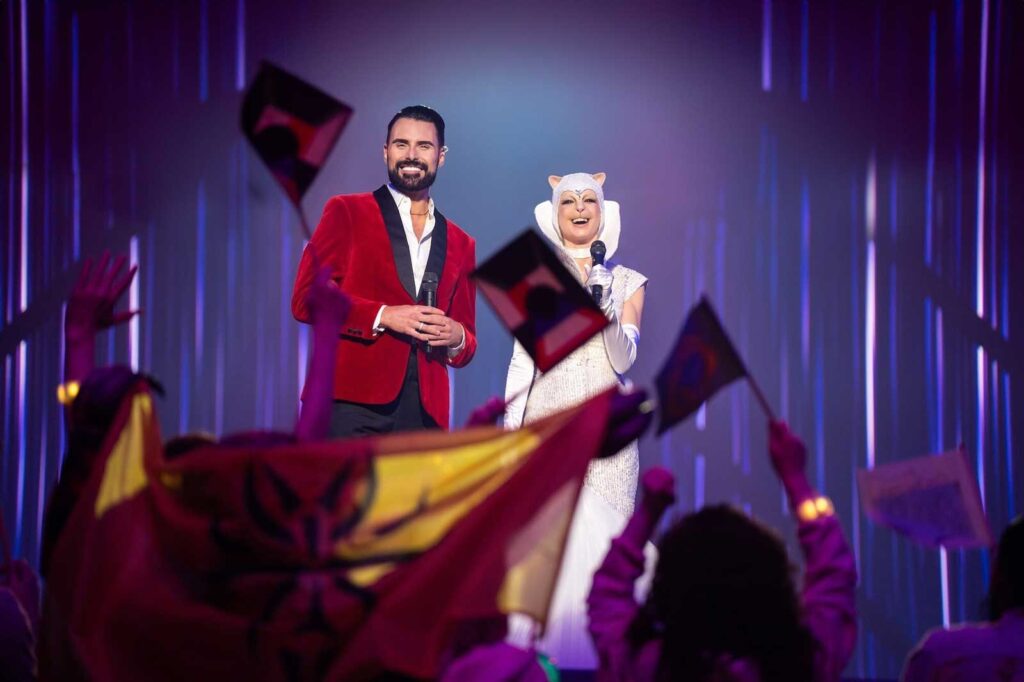
“The Interstellar Song Contest” wasn’t ashamed of being corny and just a little bit camp – as The Doctor notes, having rescued himself from space using a glitter gun. Universal hatred of the Hellions is overcome by a much-anticipated contestant who reveals herself to be a Hellion, and goes on to win over everyone’s hearts and minds with an enchanting rendition of a traditional Hellion anthem.
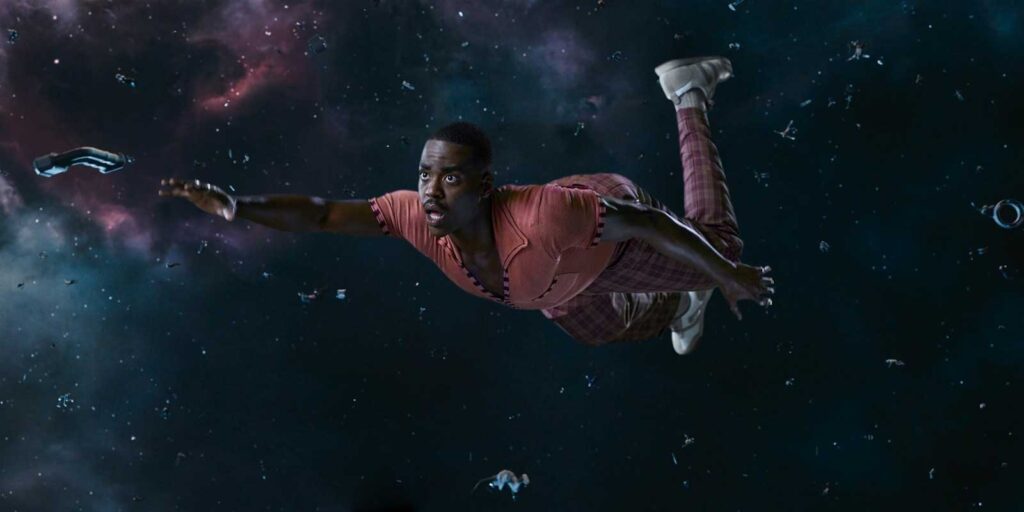
The scenario was suggested to writer Juno Dawson by showrunner Russell T. Davies, who asked for a plot mixing Die Hard with the Eurovision contest. The result could have been a ghastly return to the Sylvester McCoy era of crepe paper and glitter. I’m sure this episode’s budget played a large part in avoiding that.
Dawson is familiar with Doctor Who from her work on Doctor Who: Redacted for BBC Sounds and contributions to Big Finish’s Doctor Who audio adventures. “The Interstellar Song Contest” certainly demonstrated a familiarity with the shows format, although some of these call backs may have been unintended.
I chuckled at the opening shot of the space station, because it recalled a similar shot at the start of “The Trial of a Time Lord” season but without that episode’s flourish of a CGI TARDIS being pulled in by a tractor beam (a scene that, allegedly, it transpired, used up much of that season’s entire effects budget when unexpected cuts were imposed on the show at the time). There was also a sprinkling of Douglas Adams’s humour, particularly when the host, played by Rylan Clark, declares “Not again!”, as he is forcibly sent into cryogenic suspension, by being jettisoned into space along with 100,000 spectators.
The story also made use of comic pairings of characters there to comment on events as they unfold. I was reminded of a similar set up in Robert Holmes’ stories and the spectators in “Vengeance on Varos” (1985). In “The Interstellar Space Contest”, we are treated to two VIP members of the audience, Mike and Gary Gabbastone, who find The Doctor and Belinda have taken their seats. Mike and Gary were played with enthusiasm by Kadiff Kirwan and Charlie Condou as a bickering couple – one is an Interstellar Song Contest fan, the other isn’t, or at least one sees the event as “just a song contest” while the other see it a joyful event that unites the entire universe.
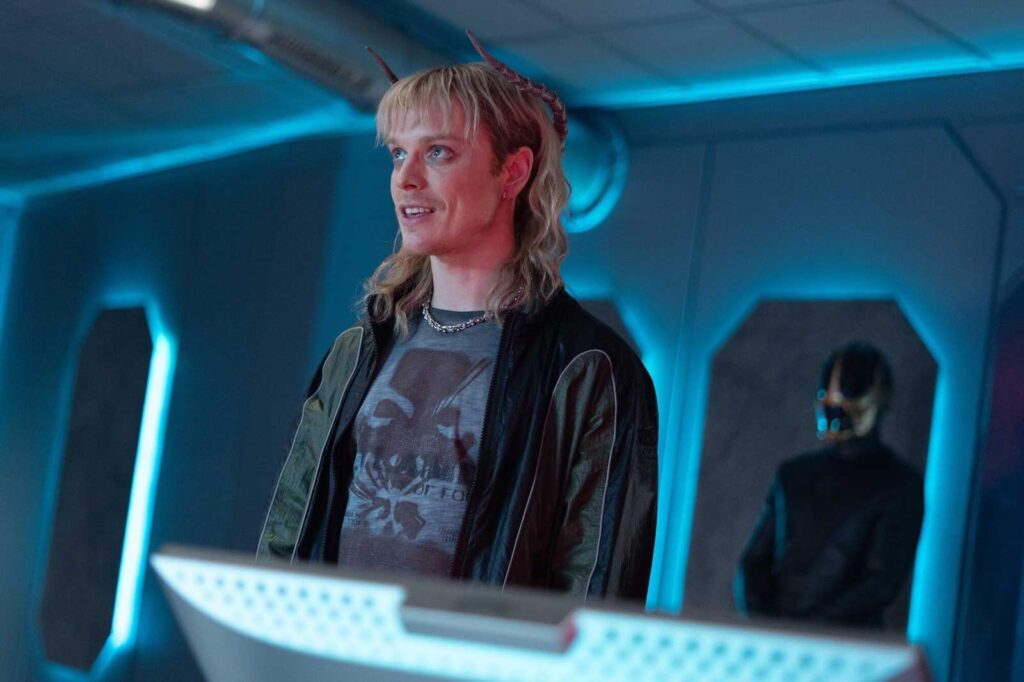
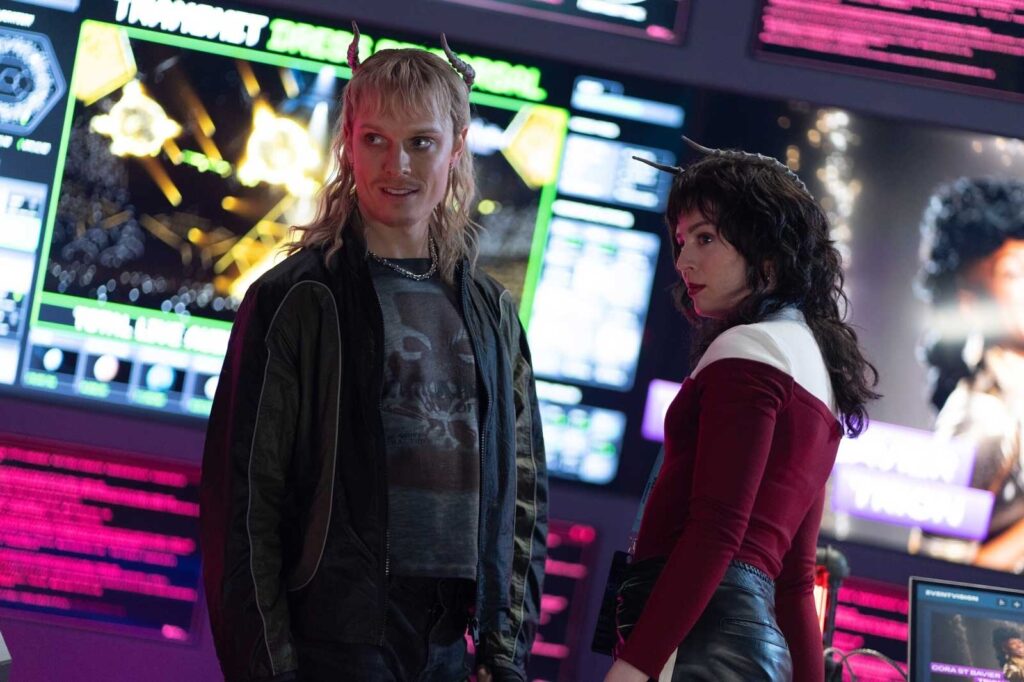
Another pairing were Wynn Aura-Kinn and Kid Hellion, played, respectively, by Iona Anderson and Freddie Fox. These characters were played for dramatic tension, as they began to implement their deadly plan. That said, I chuckled when it was revealed that Kid Hellion wasn’t the coolest named villain in Doctor Who, but was named after a baby goat, the Hellions having noticeable horns growing from the back of their heads.
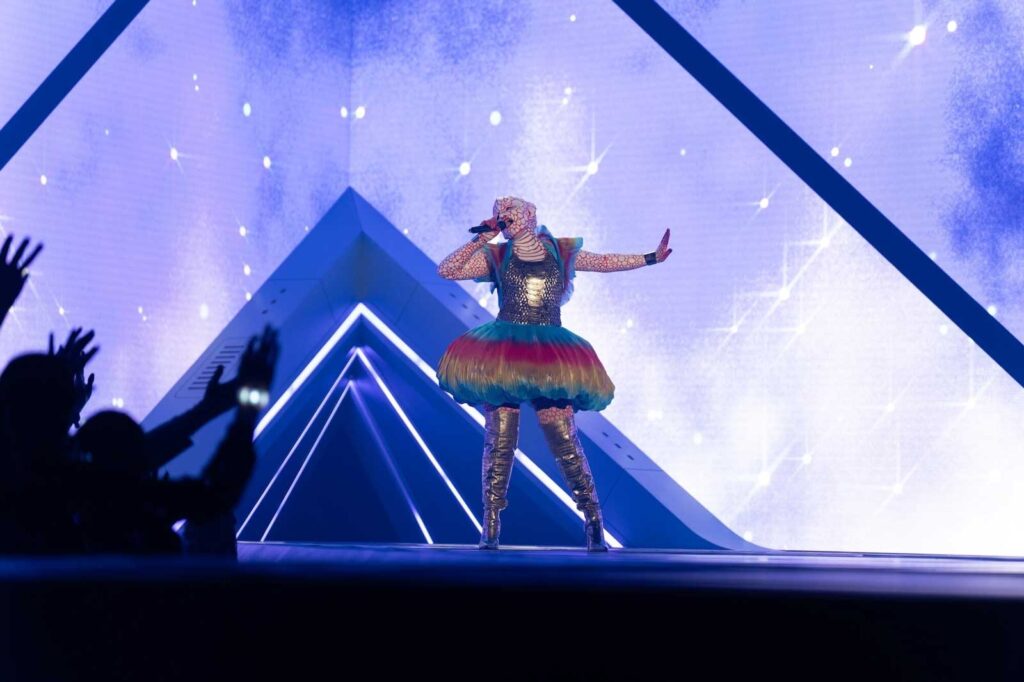
There was a similarly quirky humour in the entries to the competition notably a song titled “Dugga Doo”, surely alluding to Lulu’s 1969 song notoriously titled entry “Boom Bang-a-Bang”. Contestant Cora Saint Bavier (Miriam-Teak Lee) initial song was a humiliatingly self-deprecating ditty about her two big feet.
As previously mentioned, we discovered Bavier was also from Hellia, but has had to cut off her horns, because Hellions aren’t permitted to sing. Cora’s treatment lay at the heart of the story. The Company has stigmatized the Hellions so it can plunder the planet’s Hell Poppies and turn their seeds into honey. (At this point, my associative brain tipped into nonsense. Was the plot referencing the poppy fields in The Wizard of Oz, or was this an allusion to opiods? When The Doctor had a heavily edited nosebleed, my mind went straight to cocaine addiction).
Ncuti Gatwa’s performance cemented his role as The Doctor. In my review of “Lucky Day”, I mentioned that The Doctor seemed to be out of character when he angrily belittled that story’s antagonist. Here, he actually went further, apparently taking pleasure in torturing the villain. The Doctor reflected that he was “triggered” by the planned death of billions. Maybe. Or maybe this was a sign of things to come. I’ll certainly be sad to see Gatwa go.
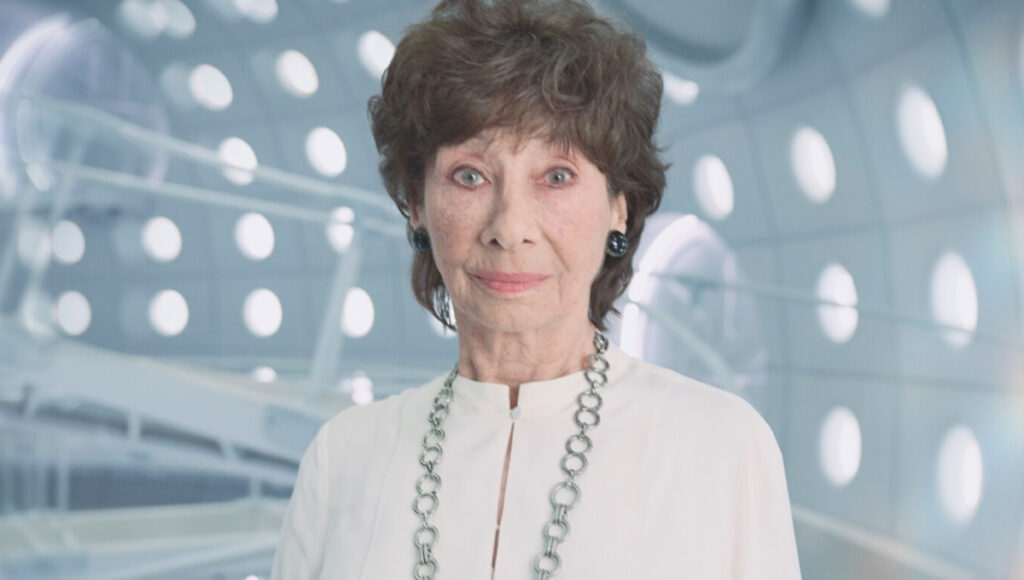
It was two guest appearances that made this story really special for (very) long time Doctor Who fans. The first was Carole Ann Ford, reprising her role as Susan, the Doctor’s granddaughter introduced in the very first Doctor Who episode. Fans had correctly predicted her return this season. I couldn’t be more delighted.
However, it was another appearance that grabbed the headlines online. I typed “the interstellar song contest doctor who” into Google Search and the majority of the results came up with one name – The Rani. Yes, she’s back baby! This time, thanks to bi-generation she is able to enter a slightly kinky relationship with her other self – Mrs Flood – a sub-dom pairing that is surely destined to be a memorable entry into the programme’s history books.
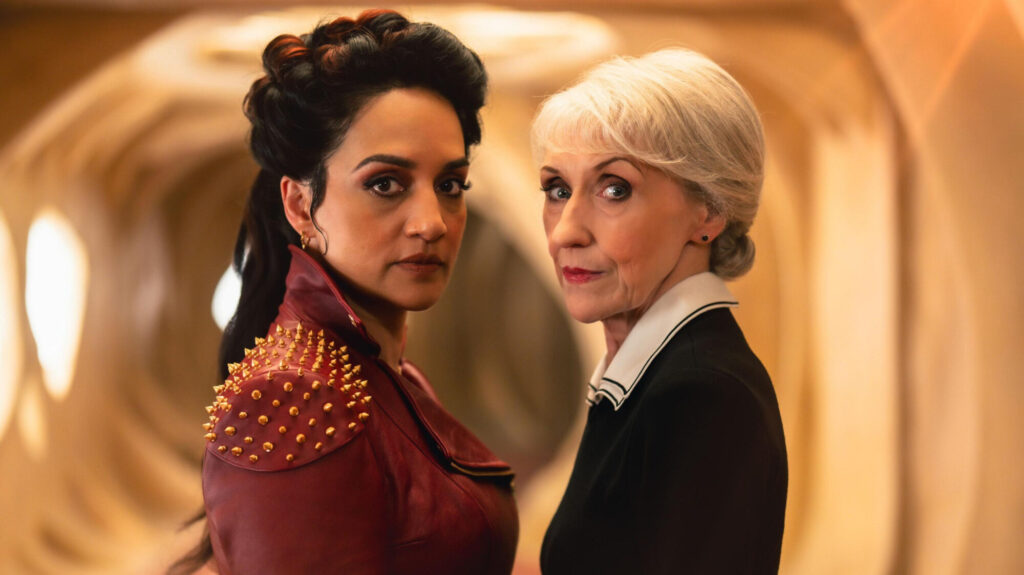
I was simultaneously thinking “Yes!” and “Oh no!” in response to her return. That was because her previous appearances, in “The Mark of the Rani” (1985) and “Time and the Rani” (1987) , left a lot to be desired, a full throttle performance by Kate O’Mara notwithstanding. Otherwise it was “tree bombs”, “Tetraps” and fancy dress all the way.
Apparently, Steven Moffat was going to reveal the character of “Missy” to be the Rani but made her a new regeneration of The Master, feeling no one would remember who The Rani was. I just don’t want to remember. But the third time’s the charm. Archie Panjabi certainly struck an imposing figure, and I know fans who have been eagerly anticipating her character’s return. I’m avoiding saying fans “predicted” her return because they’ve been predicting this for so long that, but, as with the return of the Sea Devils, fans had to be right eventually. Now, bring back the “wolfweeds!”
I greatly appreciated the story’s exploration of space stigma. The theme gave the episode a Star Trek vibe. Cora’s “coming out” moment had a greater significance, given that the writer is a transwoman. Go girl! While much of the story was pure nonsense, being built on coincidence after coincidence, the heart of the story was moving and celebratory.
On reflection, I did wonder if the story was a dig at Disney. A villainous company plundering a planet to exploit a sickly, sweet product for the masses? Maybe not, although it looks like The Doctor and The Mouse will be putting some space between them.
Tim Robins
Doctor Who in all its many iterations is available on BBC iPlayer in the UK.
The Interstellar Song Contest and other recent stories stream on Disney+ internationally
Dear reader, a review is an opinion. Other opinions are available, including yours
Dugga Doo!
Don’t let all the discourse around “The Interstellar Song Contest” distract you from the true Star of the episode: Dugga Doo…
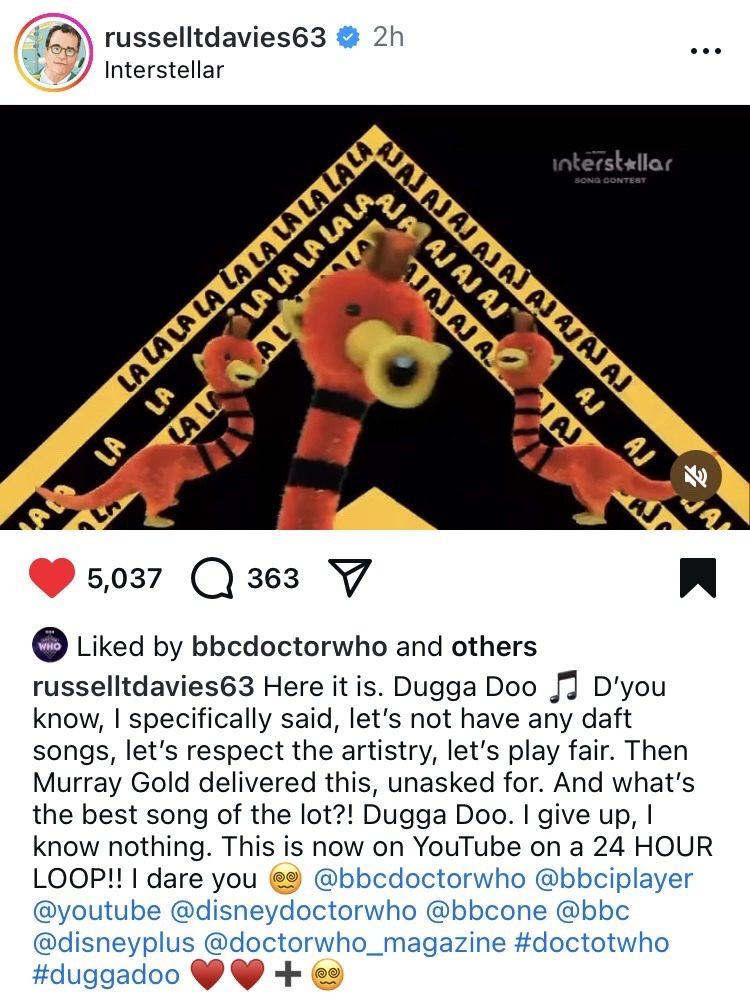
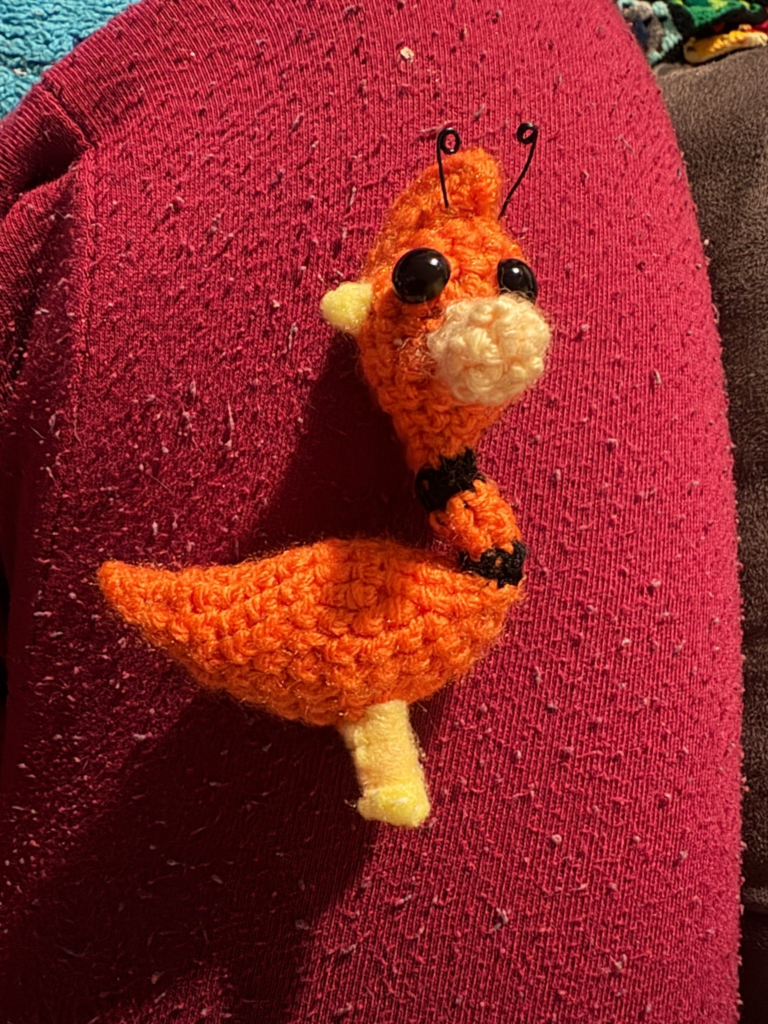

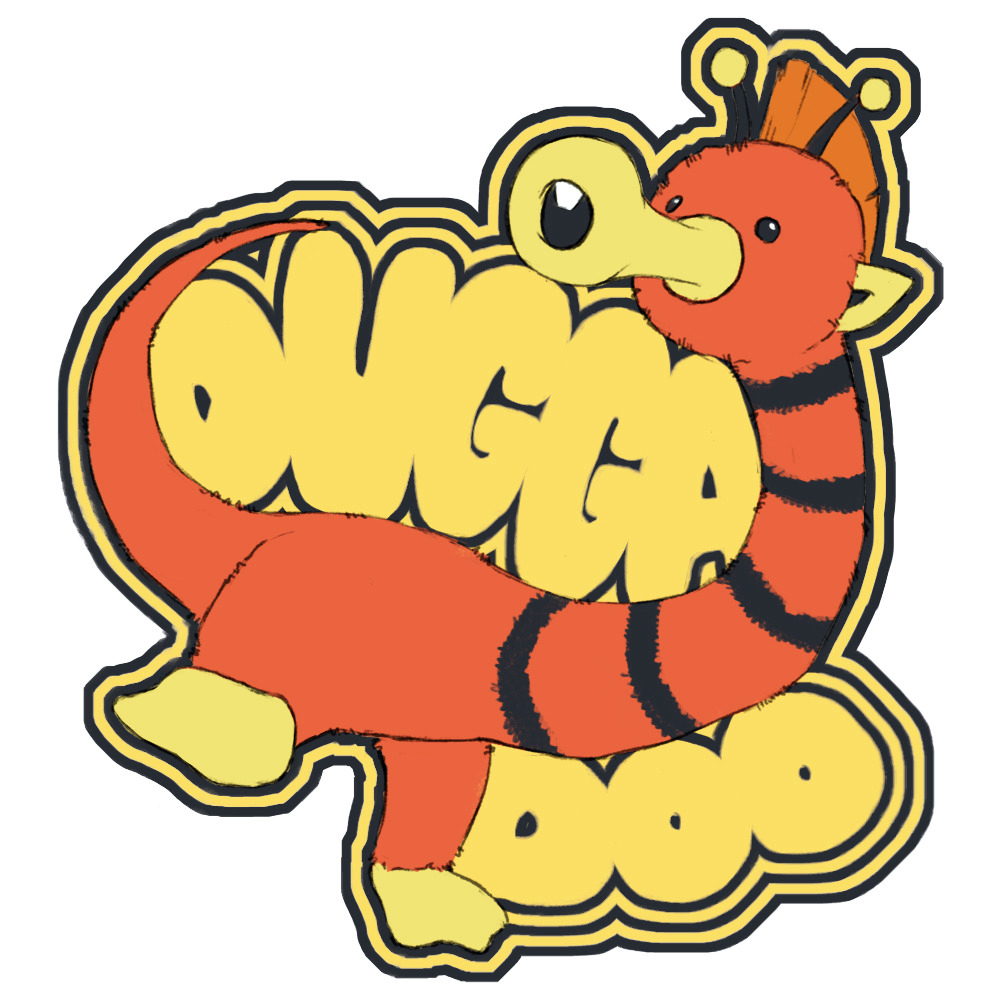
Web Links
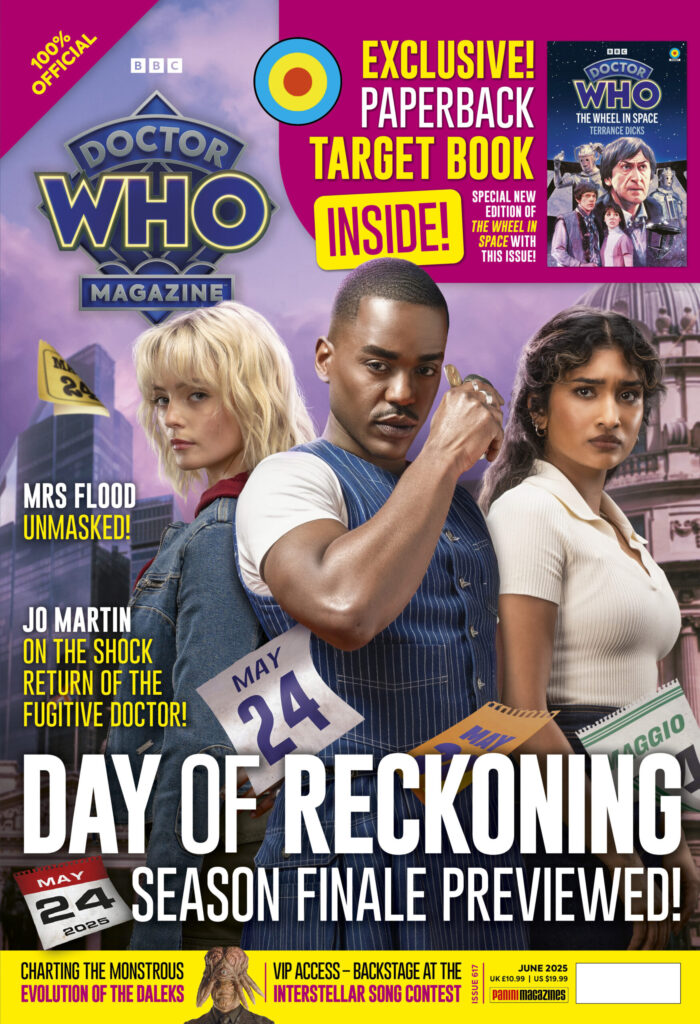
• The latest issue of Doctor Who Magazine – Issue 617 – includes background material on the making of “The Interstellar Song Contest” and much, much more, including teasers for the season finale, the comic strip “his Mad Pranks”, by Alan Barnes with art by Martin Geraghty continues; plus interviews with Jo Martin, Anita Dobson, Archie Panjabi and more… plus, we’re treated to a free Target Book “The Wheel in Space”, by Terrance Dicks!
Categories: Doctor Who, Features, Other Worlds, Reviews, Science Fiction, Television
 Final Seventh Doctor “Lost Story” headlines new Doctor Who Magazine
Final Seventh Doctor “Lost Story” headlines new Doctor Who Magazine  In Review: Doctor Who – The Story & the Engine
In Review: Doctor Who – The Story & the Engine  In Review: Doctor Who – Lucky Day
In Review: Doctor Who – Lucky Day  In Review: Doctor Who – The Robot Revolution
In Review: Doctor Who – The Robot Revolution
Dr Who is fading fast due to far too much nonsense and politics being included, on and off the stage. It seems Mr Gatwa might well be on the way out and David Tennant hasn’t covered himself in glory either. Time Lords are meant to be above Earthly squabbles. The real question is how much damage has been done to the Dr Who brand by recent “progressive” appointments? A look at the viewing figures gives the harsh answer. It is a real shame that such a prestigious programme should have been torpedoed under the waterline by somewhat “unconventional” plot lines. Why has this been allowed to happen? Is there any need to bring back the Daleks or is their number one enemy now gone?